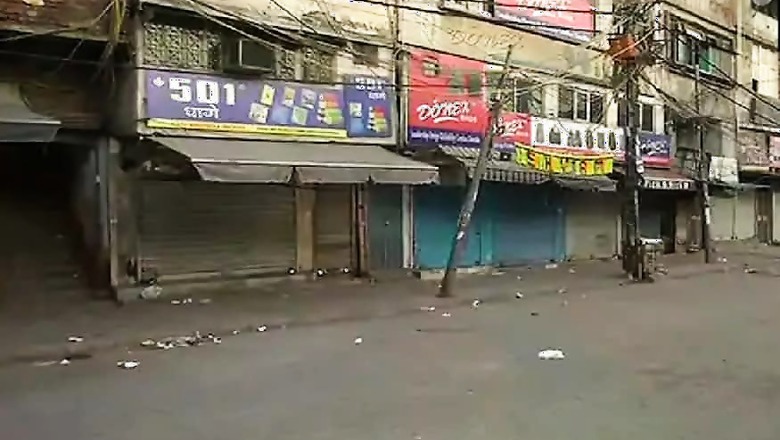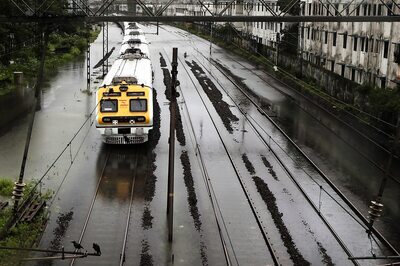
views
Battling the coronavirus scare, wholesale markets in the national capital restarted full-fledged trading on Tuesday, but they face a labour shortage and stare at an uphill task of repairing the broken demand-supply chain.
The markets opened in full a day after the Delhi government lifted the odd-even rule for shops. But the government imposed restriction on cross-border movement, which, the traders said, compounded their problems.
The revival of trade will be a slow and painful process, the associations of various wholesale markets said. Only a "positive approach" of the Centre and the Delhi government will speed it up amid a raging pandemic, they added.
They also said that governments should avoid moves like sealing interstate borders because production and sale centers are spread in the Delhi-NCR and such restrictions hamper movement of goods.
Delhi Chief Minister Arvind Kejriwal on Monday announced further relaxations in lockdown norms, and lifted the odd-even formula under which shops in a market opened on alternate days.
Trading in the wholesale markets at Ajmeri Gate, Bhagirath Place, Daryaganj, Khari Baoli, Nai Sarak, Paharganj, Karol Bagh and other places in Delhi has been badly hit by the more than two-month lockdown, said Praveen Khandelwal, the Secretary General of the Confederation of All India Traders.
"A major challenge is fear of coronavirus due to which customers are not coming out," he said. "Around five lakh traders used to come to Delhi every day in normal times. But now hardly five percent of them are coming."
A large chunk of labourers who worked at these markets have also left for their home states during lockdown creating further problems, Khandelwal said.
"The nature of trade and business has changed due to the pandemic and the traders will also have to change themselves by the way e-commerce is developing," he said.
Some trade associations said the Delhi government's decision to seal borders with neighbouring states will have a negative impact on the wholesale business.
"The governments should focus on sending positive messages instead of taking steps that make things difficult for revival," said Niranjan Poddar, the President of Automotive and General Traders Association, Mori Gate.
"Around 70 per cent of our supplies are received from NCR towns Sahibabad, Gurgaon and Ghaziabad among others, which will be hampered by the decision to seal borders."
He said the wholesale business of tools and parts of agricultural appliances was devastated due to the lockdown and it will take at least a year to revive, if the pandemic is brought under control.
The Delhi government on Monday decided to seal the border with Haryana and Uttar Pradesh for a week. Kejriwal said the decision will be revisited based on suggestion from the people of Delhi.
The shops and businesses in Delhi had started functioning from May 18 as per the odd-even formula. But, lifting of the restriction has showed positive result and almost 35 per cent of business has revived, said Arun Singhaniya, the President of Delhi Hindustani Mercantile Association.
"Governments should not resort to steps like sealing borders. It has hampered movement of goods and payments for a week which will definitely not help the traders in these difficult days," Singhaniya said.
In old city areas, the Sadar Bazar wholesale market, one of the largest of domestic items in the country, has been hit by coronavirus.
In a letter to Chief Minister Kejriwal on Monday, the Federation of Sadar Bazar Traders Associations demanded permission for opening shops after segregation and sealing of the affected parts.
Brijesh Goyal, the Convener of the Chamber of Trade and Industry, said the wholesale markets and traders will have to focus on ways to run amid coronavirus pandemic by taking extra care.
"We have decided to make face masks and sanitisers mandatory for traders, their employees as well as customers. Strict adherence to social-distancing norm also need to be implemented since the rush will increase in the markets in coming days," he said.
He expressed hope that despite the challenges due to a sharp decline in number of customers and labour shortage, the trade and business activities will be back on the tracks in next 5-6 months.




















Comments
0 comment